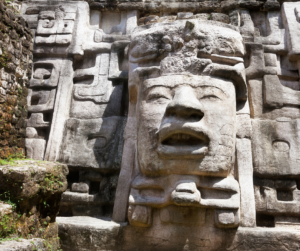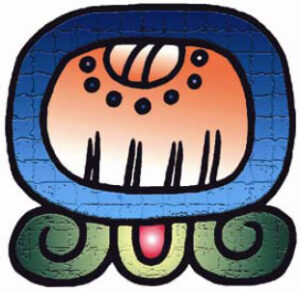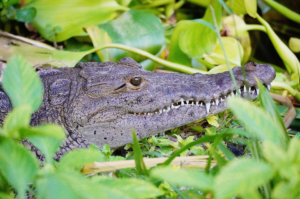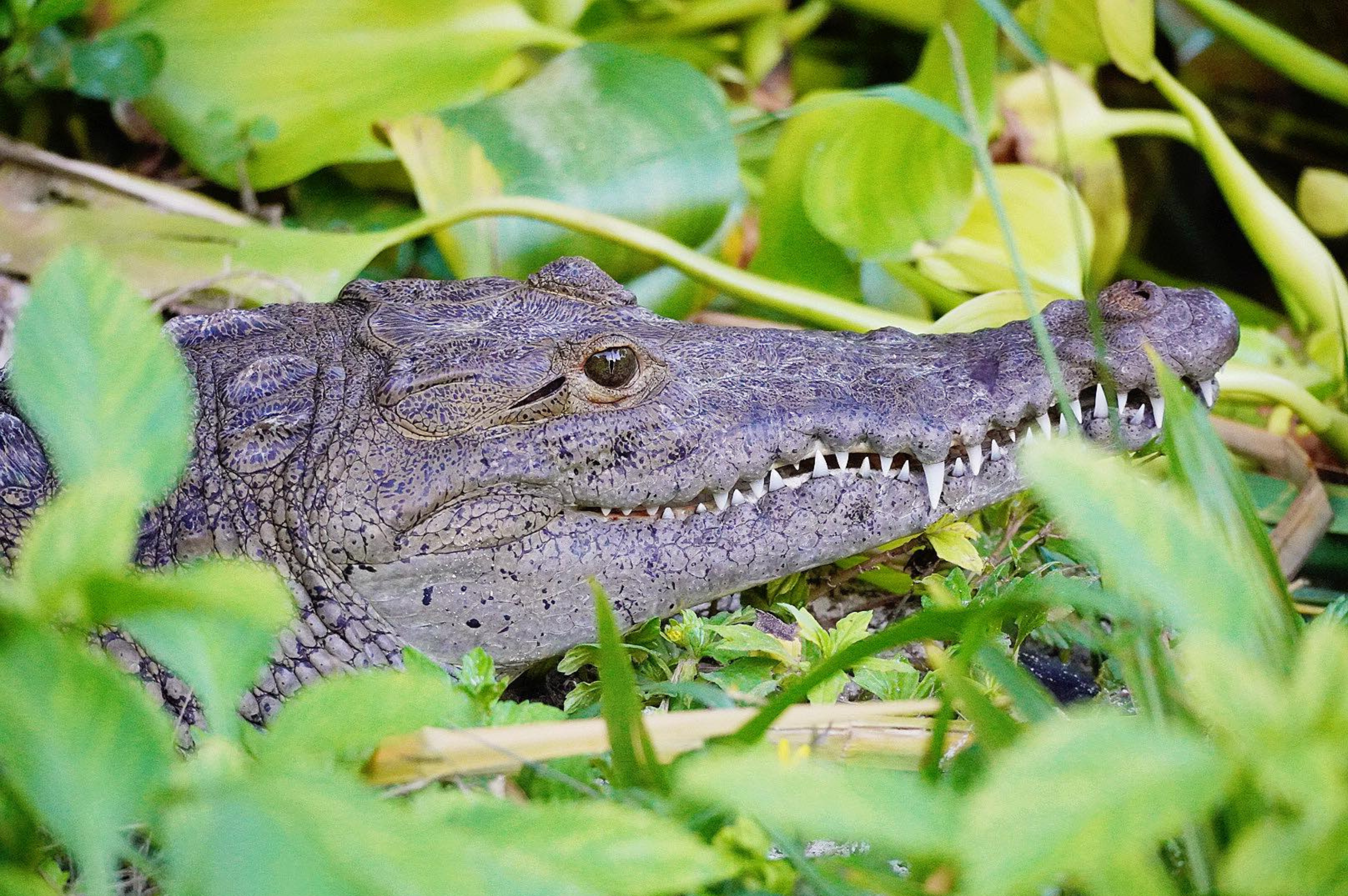Submitted by Aces Wildlife Rescue – Ambergris Caye, Belize
 Belize is truly an ecological paradise. Home to more species of wildlife than any one person could possibly name, but there’s few critters roaming this jewel that have as many myths and misconceptions surrounding them as crocodiles do. The image of a large croc gliding easily through the water is a stunning sight, but where some see beauty and predatory perfection, the image conjures up fear and hatred in others. A video or photo posted on Facebook of an adult croc going about his business always seems to warrant the obligatory comment of “kill dat before it kills someone”. Where did this view come from? It wasn’t always this way. Throughout the history of mankind, crocodiles have played an important role in the mythology of civilizations around the globe from the Mayans, to Egyptians, Aboriginals, Chinese and Hindus. In Mesoamerican mythology, crocodilians were associated with fertility.
Belize is truly an ecological paradise. Home to more species of wildlife than any one person could possibly name, but there’s few critters roaming this jewel that have as many myths and misconceptions surrounding them as crocodiles do. The image of a large croc gliding easily through the water is a stunning sight, but where some see beauty and predatory perfection, the image conjures up fear and hatred in others. A video or photo posted on Facebook of an adult croc going about his business always seems to warrant the obligatory comment of “kill dat before it kills someone”. Where did this view come from? It wasn’t always this way. Throughout the history of mankind, crocodiles have played an important role in the mythology of civilizations around the globe from the Mayans, to Egyptians, Aboriginals, Chinese and Hindus. In Mesoamerican mythology, crocodilians were associated with fertility.  They were responsible for the timely arrival of the rains and fertility of the soil. Later on in history, they were associated with the Mayan elite, as well as with the god Itzamna, considered to be the father of the universe whose mask is carved into Lamanai – a whole city itself named “submerged crocodile”. Ancient Mayan art depicted the entirety of life on earth existing on the back of a crocodilian. Eric Thompson, a Mesoamerican Archeologist, found that the “maya believed that the world rested on the thorax of a huge caiman or alligator, and this, in turn, floated on a vast lagoon”. There is indeed a deep relationship with crocodilians between the ancient maya, heaven, earth and the underworld. So how did we go from deities, symbols of power and good fortune, to a fear so strong that even the sight of a juvenile sunbathing induces panic?
They were responsible for the timely arrival of the rains and fertility of the soil. Later on in history, they were associated with the Mayan elite, as well as with the god Itzamna, considered to be the father of the universe whose mask is carved into Lamanai – a whole city itself named “submerged crocodile”. Ancient Mayan art depicted the entirety of life on earth existing on the back of a crocodilian. Eric Thompson, a Mesoamerican Archeologist, found that the “maya believed that the world rested on the thorax of a huge caiman or alligator, and this, in turn, floated on a vast lagoon”. There is indeed a deep relationship with crocodilians between the ancient maya, heaven, earth and the underworld. So how did we go from deities, symbols of power and good fortune, to a fear so strong that even the sight of a juvenile sunbathing induces panic?
Ask any class in any school what crocs eat, and numerous children will incorrectly answer “people”. Where does this fear and misinformation come from? Yes, there have been sad and horribly unfortunate incidents, but if crocs were the man eaters many believe them to be, we would be reading about attacks occurring every single day. All over Belize people are living their lives in close proximity to crocodiles whether they are aware of it or not, and thankfully, incidents are few and far in between, most of which are avoidable with a little knowledge and a little common sense. Am I trying to convince you crocs aren’t ever dangerous? Of course not, they are predators after all, as are sharks, jaguars, pumas and everything else that eats meat to survive, and caution should always be used when in their habitat. But just like all other beings in the magnificent and complex ecosystems within this jewel, they have a vital role to play maintaining balance and health within the environment. It is the habits and behavior of us and our neighbors that determine how we live alongside the wildlife,1 and it is our responsibility as the most intelligent species to find ways to coexist for the good of all creatures and the balance of Mother Nature.
 So here are some tips to avoid human-crocodile conflicts:
So here are some tips to avoid human-crocodile conflicts:
Don’t ever feed crocodiles: This is imperative and there’s no grey area here. Feeding any wild animal takes away the natural fear they have of people and teaches them to associate people with food. This drastically increases the chance of an attack, maybe not for you, but what about an unsuspecting child climbing and playing in the mangrove or fishing at the water’s edge who’s unaware there’s a croc nearby expecting to be fed? By feeding crocs, you not only put yourself in danger, you endanger the entire community.
Dispose of your food scraps: If you leave cat and dog food on your porch or your trash can uncovered, you’re likely to attract rats or raccoons, throw food scraps into the water and you’re likely to attract crocodiles. If you live on the water and you regularly dispose of your food waste this way, you’ll end up with crocs hanging out by your house. If you fish in the same spots routinely and leave your fish scraps at the water’s edge, you could end up with crocs too close to comfort expecting to be fed. Dispose of your food properly in a trash bin and clean your fish away from people’s homes, swimming areas, and away from the waters they inhabit. Don’t give crocs a reason to see your presence as a good thing.
Show extra caution during hunting hours: Crocodiles hunt at dusk and dawn and are generally quite active at night. If you must be in or around the water’s edge, try to avoid these hours. Always be aware of your surroundings. Don’t swim in crocodile territory, especially at night, and certainly don’t spearfish in croc habitat at night – or at all ideally. Crocodile eyesight isn’t great underwater during the day and it’s nonexistent at night. They instead rely on movement and vibration sensors to hunt. This can lead to cases of mistaken identity during darker hours, and in daylight hours a croc you’ve unknowingly cornered in the mangrove while you’re focused on searching for fish will lash out if he feels threatened.
Stay away from baby crocodiles: Contrary to popular belief, crocodiles are very good parents who protect their young. Prior to hatching, mama croc protects her nest and once they hatch the young will stay close by, particularly in the first few months after hatching. If you spot a baby, there’s a good chance mama is nearby, watching and guarding her offspring. Don’t mess with them, and don’t give mama cause for concern as she could act defensively.
Choose your swimming spots: We all love a dip in the ocean, and no one can resist the lure of a beautiful jungle river to cool off in. Avoid areas thick with mangrove or dense low hanging bush. These are the types of areas crocs like to hide in during the heat of the day. Instead pick open areas with clear water and gradual beaches that are lacking in thick vegetation. And again, mind the time. Crocs are not the only things to hunt once the sun goes down.
Mind your pets: From thousands of years of domestication, most pets have lost their survival instinct, dogs in particular make easy targets for crocs. If they’re allowed to roam free near the water’s edge, there’s always the possibility they could become part of the food chain. Keep them close and on leash to keep them safe. If you live on the water, erect simple barricades to prevent crocs coming into your yard. It doesn’t have to be fancy, just something to take away the ambush capability of crocs and to put something between the water and your pets.
Most truly wild crocodiles don’t want anything to do with us and they certainly don’t see us as a food source. Their natural prey is fish, shrimp, crabs, small mammals, other reptiles and birds. It is only the actions of individuals that change this fact and change their behavior. Take heed of my advice, and keep the potential for human-wildlife conflict to an absolute minimum.
If you have further questions, or concerns regarding a crocodile, you can contact the Belize Forest Department on 828-4936, or Aces Wildlife Rescue on 623-7920 or [email protected]

Share
Read more

